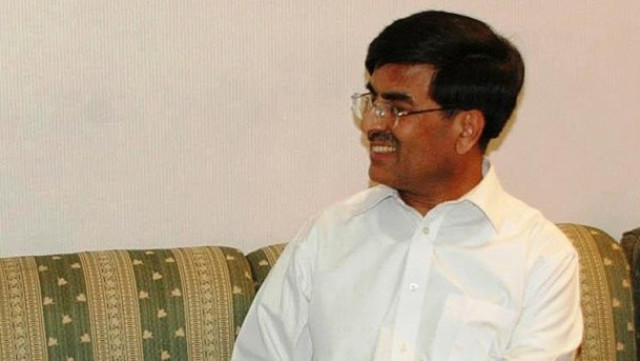'Business community concerns regarding MFN to India to be addressed'
Indian High Commissioner says implications regarding post-MFN agreements under consideration.

Addressing the Lahore Chamber of Commerce and Industry (LCCI), Sabharwal said that implications regarding post-MFN agreements were under consideration between the concerned authorities of both countries.
"Indian and Pakistani business communities are willing to promote economic and trade relations with the idea of enhancing the volume of bilateral trade for attaining regional peace and to end poverty," said Sabharwal.
He said that customs coordination between the two countries was being worked out in order to sort out procedures, saying that India’s concern was to promote trade with Pakistan in the larger interest of the people of the two countries.
He said that India was making efforts to resolve visa problems face by the Pakistani business community and that multiple visas for one year would be issued to businessmen under visa liberalisation policy by the Indian High Commission.
“The draft of visa policy is likely to be approved by the Indian government,” he added. He further said that at present the visas were being granted under the 1974 visa policy of India.
He said that frequent travelers visiting under business visa were exempted from acquiring a police report.
He said that the Pakistani business community had showed a positive response for promoting trade with India and in return the Indian government also made strenuous efforts for increasing the bilateral trade volume from two billion dollars to six billion dollars.
Sabharwal pointed out that establishment of a separate gate and other facilities were underway at the Wahga-Attari border, for the handling of export cargo for 12 hours every day.
The gate would also provide hurdle-free transportation facilities at the border, he added.
He disclosed that a well-equipped check post worth Rs1.5 billion was established at the Pak-India border, which would facilitate bilateral trade between the countries. He said that Indian experts would help Pakistan in overcoming the energy crisis.
In his welcome address, LCCI President Irfan Qaiser Sheikh said that the earliest removal of non-tariff barriers would largely consolidate the business communities efforts as most of the businessmen were not aware of Indian standards and quality parameters, which also vary from city to city.
He said that there were numerous conditions for getting the shipments cleared, which included agriculture permits, phyto-sanitary certificates, Indian standard of quality, licensing requirement for import of vehicles, textile specific barriers, health and safety regulations and many more. It is hoped that this area will be taken care of in near future by the Indian government with special preference given to Pakistan, he said.
He said that it can be said without a doubt that the potential gains from increased economic integration between India and Pakistan are large.
Bilateral trade between India and Pakistan has remained undersized and averaging around US$ 1.7 billion over the past 3 years through regular channels. Whereas overall volume of Trade between India and Pakistan through irregular channels like Dubai, Singapore and etc. ranges around over three billion dollars per annum. According to some estimates, the trade with India has the potential to be anywhere between eight to ten billion dollars.
“If trade between Pakistan and India is liberalized the volume of exports of these commodities to India can take a quantum jump.”
Similarly, there is a great potential for export of fish, resins, animal & vegetable fats, beverages, spirits, vinegar, leather & leather goods, carpets, and tobacco.
Pakistan can import cotton seed, meat, dairy products, vegetables, fruits, tea, tanning, dyeing extracts, chemical products, rubber and rubber products, raw materials and semi finished products etc.
“We, the business community, are committed to have a serious, sustainable and constructive engagement with India and early and full normalization of relations on the basis of mutual non-interference, peaceful co-existence and respect for each other”, Sheikh said.



















COMMENTS
Comments are moderated and generally will be posted if they are on-topic and not abusive.
For more information, please see our Comments FAQ